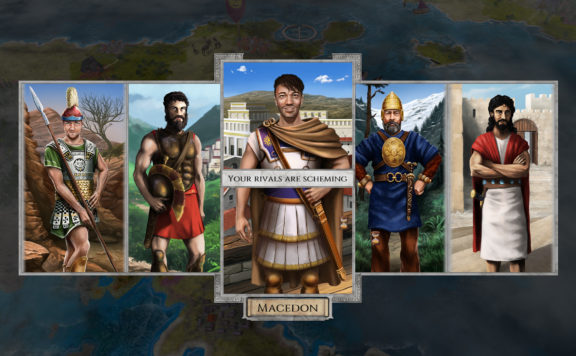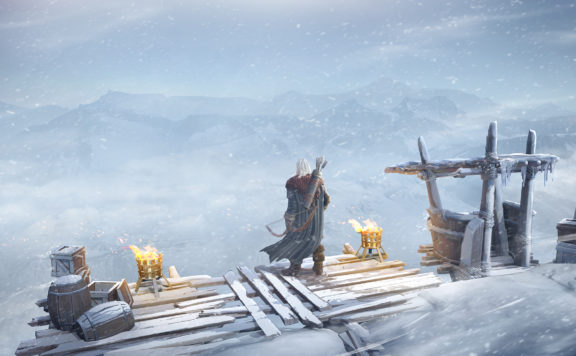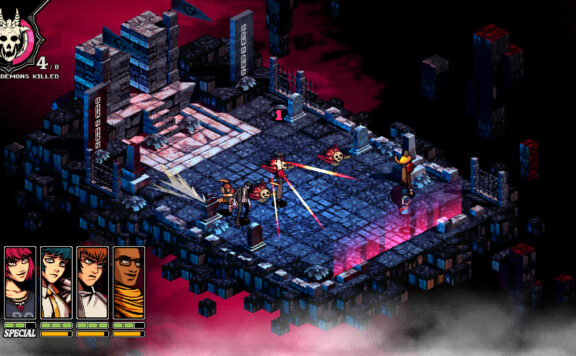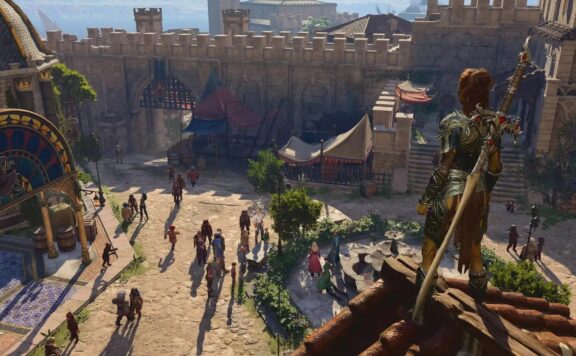Created by the developer Morteshka studio and published by HypeTrain Digital, Black Book is a dark adventure based on Slavic folklore following a young witch named Vasilisa. The game is available on PC, PS4, Xbox One, and Nintendo Switch.
How far are you willing to go for your lost love? Where do you turn when there is no shelter or solace to be found? Is the power to change things worth the consequences that follow?
Black Book aims to answer all of these questions and more as it invites players to a narrative-rich adventure in a unique setting.
True to the name of the game, the story revolves around a mysterious artifact called the Black Book. It is locked behind the seven seals that resolutely held it closed against the many attempts of acquiring the knowledge it hides. Not a single seal had been opened… until now.
The protagonist of the game is a young witch named Vasilisa. From the very intro, players learn that the girl seems to possess an extraordinary talent for witchcraft and had all but been destined to become a powerful sorceress.
The girl decides to fight against that destiny once she finds love. She dreams of marrying her beloved and living a life away from sorcery and dark forces. But fate has other things in store for her: her betrothed dies under mysterious circumstances, believed to have committed suicide. Desperate to save the soul of her beloved from hell, Vasilisa pledges her life to serve the dark forces. Her path begins with the ritual that proclaims her a witch – and opens the first of the seven seals on the Black Book.
Does Vasilisa fight against fate, or has she been playing into its hand the whole time? Join her on her adventures across the rural countryside as she hones her craft and fights demons, performs exorcisms, and uncovers the secrets hidden in darkness.
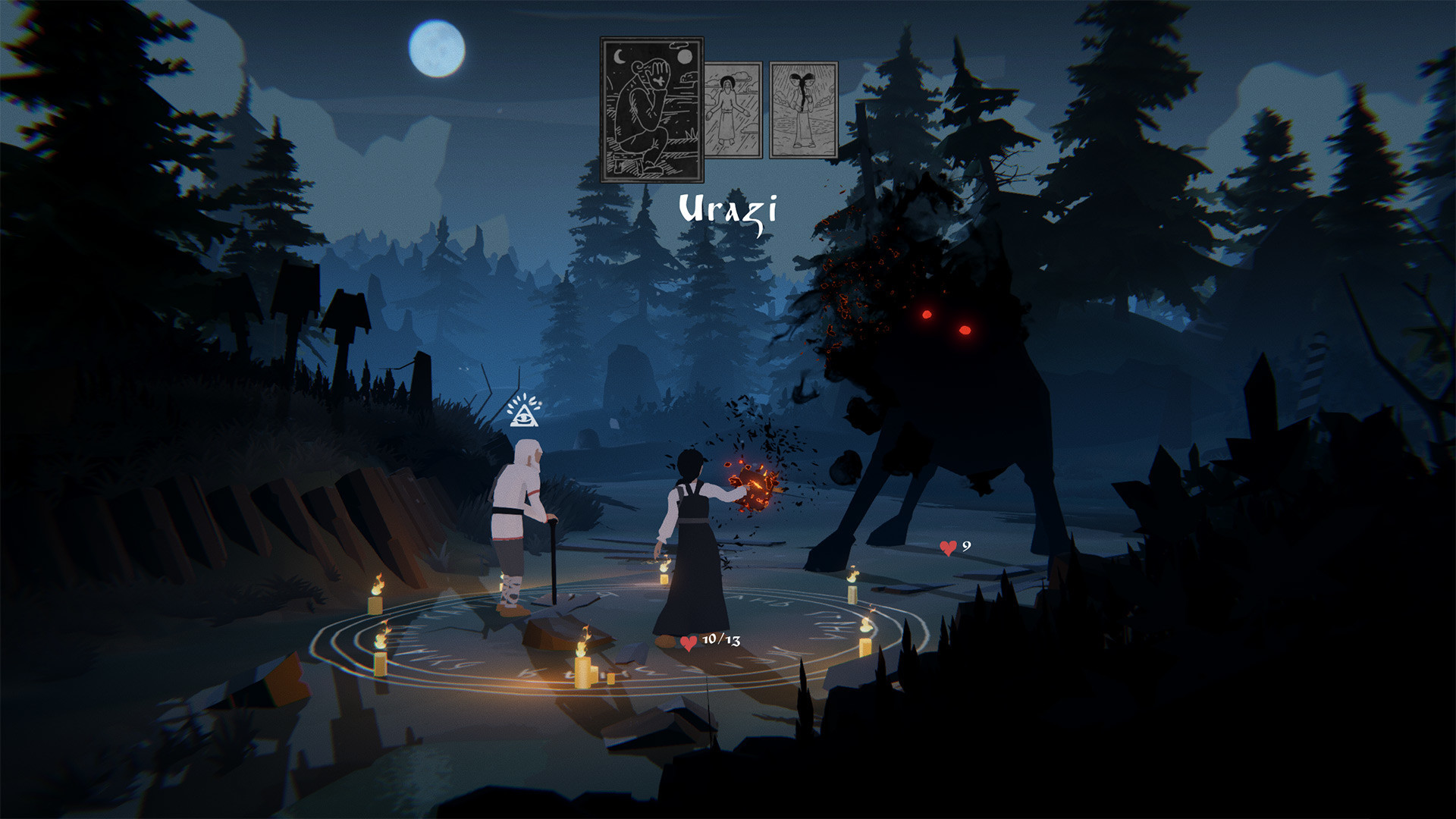
The game’s story is its strongest side, complete with a number of different endings based on your choices, affecting Vasilisa herself as well as some of the characters she encounters on her journey.
To me, the weakest part of the narrative was the protagonist’s motivation that was ironically supposed to be the foundation for the entire story. After the emotional and sad intro where Vasilisa grieves her lost love and decides to pledge to the witchcraft just to have a chance to have it back, that particular story is barely mentioned.
Vasilisa’s beloved is a hole in the canvas of the story, with the girl herself barely remembering him amidst her journeys and run-ins with the dark forces. The boy was no more than a fate’s tool to get Vasilisa to accept the gift of sorcery.
In addition to the main quest, Black Book also offers a variety of smaller activities and side quests that offer you more insight into the unique Slavic folklore and traditions. Local peasants would frequently reach out to Knowers, such as Vasilisa and her mentor Old Egor, to aid them in supernatural troubles.
Frequently, you will get multiple options to finish a particular quest. Do you accept a local farmer’s request to curse his mother-in-law, resolutely decline it or curse him for his arrogance? Either way, performing a curse will burden Vasilisa with a sin. The number of sins just might have an effect on the ending!
Would you like to bind a chort (a malicious demon) to do your bidding instead of forcing it away from the place of mischief? Be careful if you decide to go for power, chorts will turn on their own mistress and torture her if she doesn’t find them something to do instead! If you get entirely too many demons bound to you, the management part can become quite a bother.
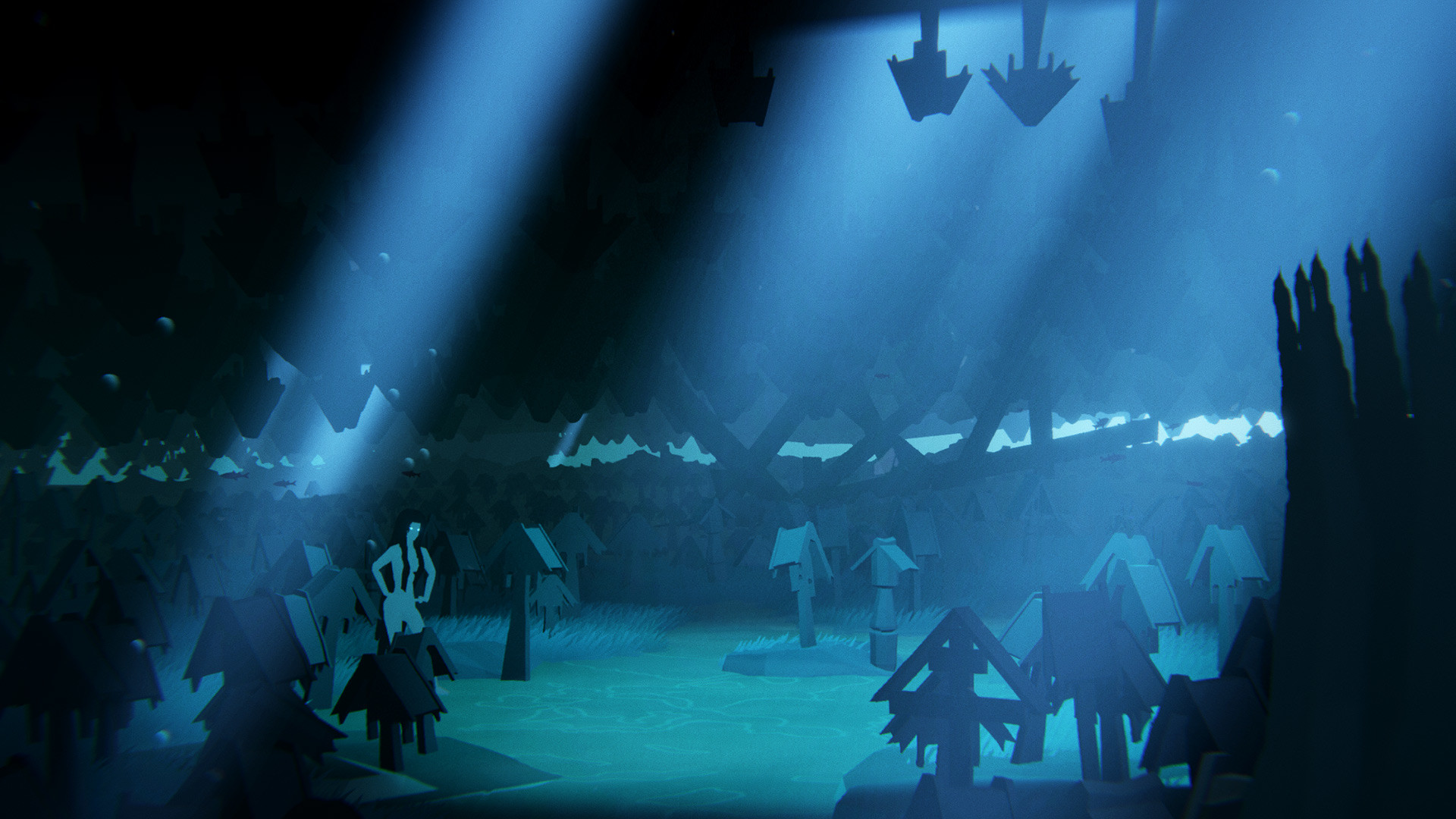
Gameplay-wise, Black Book attempts to marry a card-based RPG with a point-and-click adventure and does it surprisingly well. While neither element is as deep as a “pure” game of the corresponding genre, the fusion itself works wonders.
There are also just enough puzzles and side activities to break up the monotony that would have likely settled in otherwise.
As Vasilisa travels around the world and hones her craft, she gains access to new zagovors – spells and curses. At any point in time, you can change your deck by switching up the spells Vasilisa will be using in combat.
Chances are, you will have to do that before boss battles anyway as the strongest enemies have immunities and ignore certain spells.
At the start of each turn, Vasilisa will be randomly drawing cards from your deck. Usually, you can use three per turn, split among two types. There is quite a variety among the available spells: direct damage, buff, debuff, shield, bonus actions, etc.
The more spells you unlock, the deeper and more interesting the system gets while still remaining relatively intuitive to understand.
Vasilisa’s magic allows her to glimpse into enemies’ intentions, providing you with a way to plan accordingly: shield or heal up if an enemy is planning to attack, go all-out in terms of damage if they are healing, use spells that ignore shields if the enemy is restoring them, etc.
The developers have shared an in-depth guide to the combat system, you can check it out on Steam.
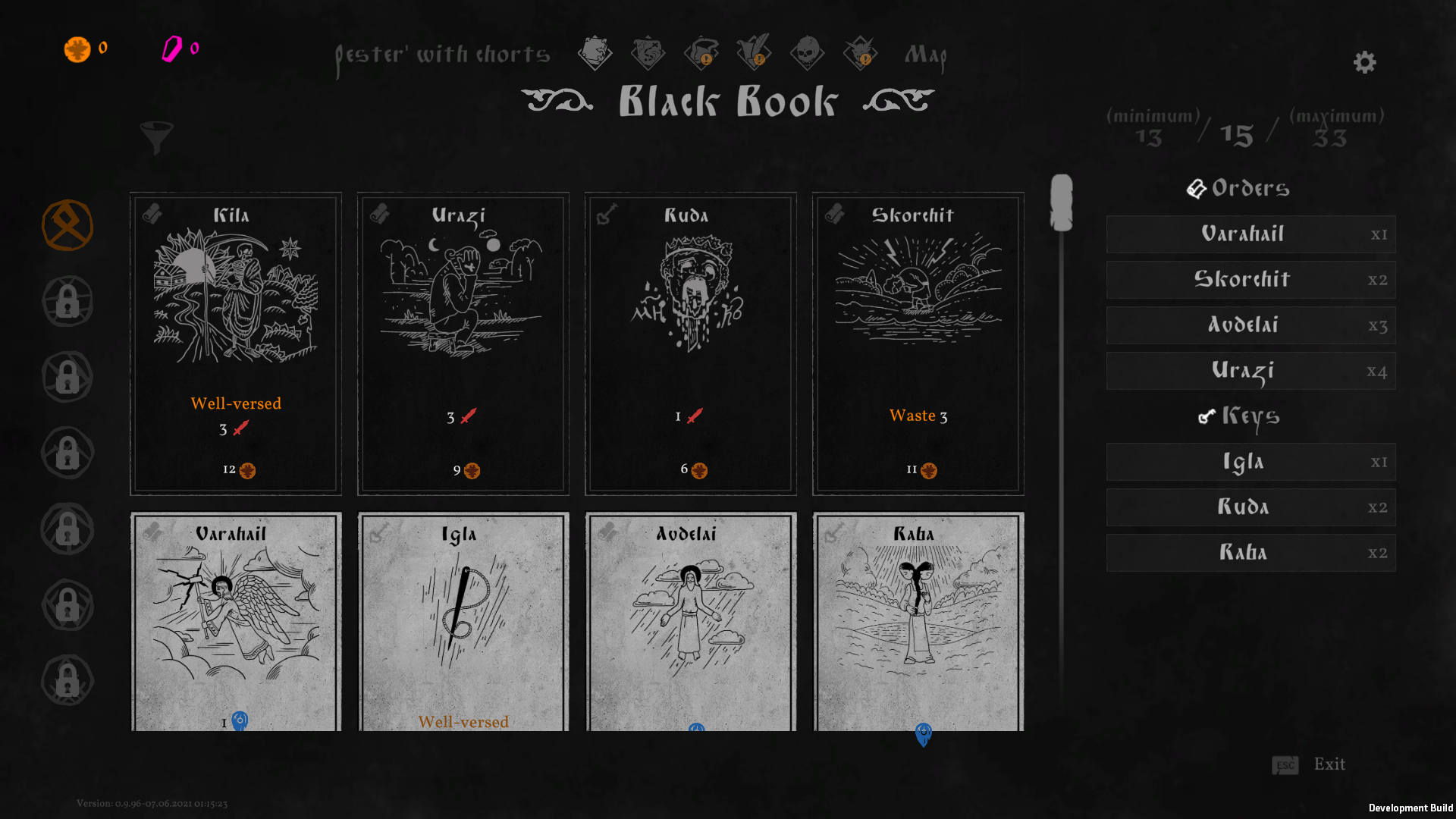
Now for a bit of subjective nitpicking. Having been born and grown up in Russia, I have a certain soft spot for Slavic mythology, aesthetics, and overall authenticity.
Black Book certainly took great care when it comes to the portrayal of life in the Slavic countryside, complete with expressions, accents, and overall flavor… that is sadly almost entirely lost in English translation. By no means is the translation bad. It is fully functional, providing you with all the required information. But at the same time, there are many little things that managed to grate on my nerves in my playthrough.
As a native Russian speaker, I can easily see the writers’ attention to the nuances of the older versions of the language. The way the dialogue is structured and built is aiming to reflect the appropriate speech pattern for the age the game’s events take place in. In English, however, that is missing due to the complexities of translation. The language is more modern and less precise than in Russian but translators have done an admirable job nonetheless.
Additionally, while the Russian voice-over leans heavily into the overall aesthetic of Cherdyn’s culture, the English one treats it as a generic fantasy with a few local words thrown in for the flavor. Not only that, but the game also manages to stumble over its own translation, changing the spelling of names on the fly and using the dark forces’ names (like chort, imp, demon, devil, etc.) interchangeably while in Russian they reflect a certain power structure instead.
If you can, do yourself a favor and play the game with English subtitles and the Russian voice-over.
Note: the Steam key was provided for free for the purposes of this review.


